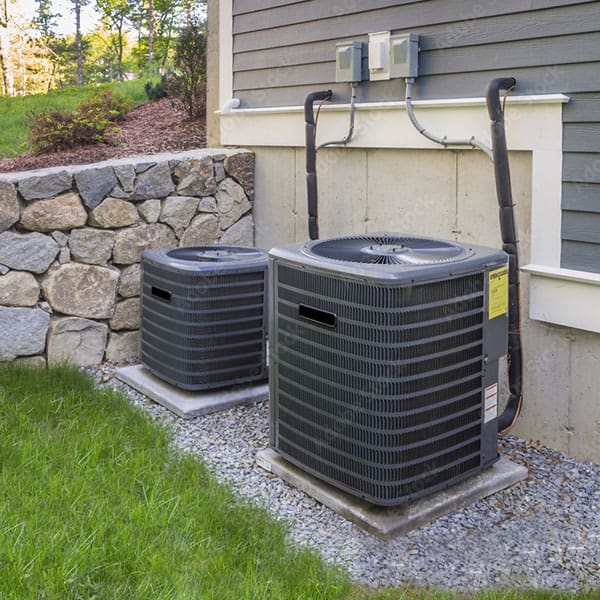
INSURANCE GUIDE: How to choose the best HVAC Contractor Insurance
As an HVAC contractor, you know first-hand the demands of running an HVAC business. Choosing an HVAC Contractor insurance plan to protect your business can seem daunting, but we’re here to help. In this comprehensive guide, we’ll walk you through selecting the best HVAC contractor insurance for your business.
Regarding insurance, every HVAC contractor has two main priorities in mind: protecting their business and clients. Accidents happen, and having the right coverage can save you from unexpected financial burdens down the line. But with so many options available, how do you know which policy best fits your needs?
From general liability to workers’ compensation to professional liability, we’ll outline the key types of insurance you should consider for your HVAC business. We’ll also provide essential factors when evaluating insurance providers and policies.
This checklist will help you with the knowledge and tools to make an informed decision.
Understanding the different types of HVAC contractors insurance coverages
General Liability Insurance
This coverage protects you against third-party claims for bodily injury, property damage, or personal injury. If a client or a member of the public gets injured on your premises or because of your work, general liability insurance will cover the costs associated with legal claims and medical expenses.
Tools and Equipment
You can’t serve your clients if you do not have the proper materials and equipment. If something happens to these, they can be costly to replace. Because of this, your property insurance policy must provide coverage for the tools and machinery used to perform your services. Also, consider inland marine insurance to protect items in transit between sites or your headquarters.
Workers’ Compensation Insurance
As an HVAC contractor, you likely have employees under your supervision. Workers’ compensation insurance is essential to protect your employees in case of work-related injuries or illnesses. This coverage will provide medical benefits, wage replacement, and other necessary support for your employees, reducing your liability as an employer.
Professional Liability Insurance
Also known as errors and omissions insurance, professional liability insurance is crucial for HVAC contractors who provide design, consultation, or advice. It protects you from claims arising due to mistakes, negligence, or failure to deliver promised services.
Business Auto Insurance
Because your business requires your employees to travel and haul equipment, you likely have a fleet of vans, trucks, and trailers. Vehicles owned by the company should be covered under a business auto insurance policy if there is an accident. This policy would also cover damage due to vandalism or theft. If employees use their vehicles for business, you’ll also want to purchase hired and non-owned auto coverage.
Commercial Property
This coverage protects your business property, including equipment, tools, inventory, and office space, from risks such as fire, theft, vandalism, and natural disasters. Commercial property insurance will cover repairs or replacement costs if your HVAC equipment gets damaged or stolen or your office space is affected by a fire.
Assessing your insurance needs as an HVAC contractor
It’s vital to determine your specific insurance needs as an HVAC contractor. Every business is unique, but there are some common factors to consider when choosing the coverage amounts and types that are appropriate for your business:
- Size of your business: The number of employees you have and the revenue you generate will impact your required insurance coverage. Larger companies with more employees and higher revenue typically need higher coverage limits.
- Nature of your work: Assess the risks associated with your specific HVAC services. Do you work on residential or commercial projects? Are you involved in complex HVAC installations or repairs? Consider the potential risks and liabilities specific to your line of work.
- State and local requirements: Check your state and local regulations to understand the minimum insurance requirements for HVAC contractors. Ensure you comply with these requirements while considering additional coverage to protect your business adequately.
- Additional risks: Are there any unique products or services to your business? For example, do you focus on a specific product or service type? Do you have additional services beyond HVAC, such as running an online e-commerce site selling heating and cooling products?
Potential Exposures
Understanding potential risks faced by HVAC contractors provides insight into the types of insurance coverage needed and how to mitigate risks.
Here are some common risks you may face:
Injuries—The physical nature of work performed by HVAC contractors makes them susceptible to injuries. They work in demanding conditions that involve tight spaces with equipment and tools. There are also environmental hazards at a worksite that include fires, shocks, or carbon monoxide exposures.
Property damage—HVAC systems are complex and volatile and may cause damage to a client’s property. Property damage can occur both during a project and after its completion. If a client’s HVAC system fails, it can often involve flammable gasses, fires, and explosions, resulting in property damage exposure for the HVAC contractor.
Auto accidents—Work and fleet vehicles create auto exposures for any business. Business-related auto accidents could lead to severe injuries or fatalities, resulting in auto insurance claims. Additionally, vehicles involved in accidents could be rendered useless due to substantial damage, putting a financial strain on your organization.
Considerations for choosing the best HVAC contractor’s insurance.
Once you clearly understand your insurance needs, it’s time to consider your choice of insurance provider. This is where an independent insurance agent can help. Independent agents represent many insurance companies and can get quotes from several carriers. In their proposal, they can provide details for coverages, coverage limits, exclusions, additional coverages, and premiums from multiple carriers. Your agent can recommend a carrier they feel would fit your business well. You and your agent should consider some key factors when choosing an insurance provider.
- Experience and expertise: Look for insurance providers that specialize in serving HVAC contractors. They will better understand the unique risks and challenges you face in your industry.
- Financial stability: Choosing an insurance provider with a solid financial standing is essential. This ensures that they can fulfill their obligations in the event of a claim.
- Claims handling and customer service: Research the reputation of insurance providers in terms of their claims handling process and customer service.
- Ease of doing business – it used to be that sizeable online insurance companies were the ones who offered account access and digital tools to make buying and maintaining your insurance policy easy. Now, Colby Insurance Group has the same tools, giving you more access and more control over your account using Colby’s online customer portal or mobile app. Make payments, file claims, get certificates, see policy details, and more.
When working with an independent agent, you will get an advisor and an advocate on your side. They represent and work for you, not the insurance company. They can help guide you through all aspects of the insurance process. Through experience, they will know which insurance companies work best with HVAC businesses like yours.
You can narrow your options to the most reputable and reliable insurance providers by exploring your options with your agent.
Evaluating Insurance Coverage Options
Once you and your agent determine the shortlist of insurance providers, it’s time to evaluate their coverage options. Consider the following factors when comparing insurance policies:
- Coverage limits: Ensure that the coverage limits provided by each policy are sufficient to meet your specific needs. Consider the potential risks and liabilities associated with your HVAC business.
- Deductibles: Evaluate the deductibles associated with each policy. A deductible is the amount you’ll have to pay out of pocket before the insurance coverage kicks in. Choose a deductible that aligns with your budget and risk tolerance.
- Additional endorsements or riders: Some insurance policies offer additional endorsements or riders that can enhance your coverage. For example, you may be able to add coverage for pollution liability or protection for tools and equipment.
- Exclusions and limitations: Carefully review the exclusions and limitations of each policy. Ensure that they align with the risks you face as an HVAC contractor and that you fully understand what is and isn’t covered.
By evaluating these factors, you can determine which insurance coverage options best meet your specific needs as an HVAC contractor.
Understanding policy exclusions and limitations
Before finalizing your decision, work with your agent to ensure you thoroughly understand the exclusions and limitations of the insurance policies you’re considering. Use your agent’s experience to your advantage. Ask questions so you have a complete understanding of what will be covered by your policy and what will not. Seek clarification when needed. Some standard exclusions and limitations in HVAC contractor insurance policies include:
- Faulty workmanship exclusions: Some policies may exclude coverage for damages resulting from faulty workmanship or poor craftsmanship. Ensure that you understand the extent of this exclusion and, if possible, negotiate coverage for errors in your work.
- Pollution exclusions: HVAC contractors may encounter pollution-related risks, such as accidental oil spills or refrigerant leaks. Some policies may exclude coverage for pollution-related damages. Consider adding pollution liability coverage if it’s not included in the base policy.
- Subcontractor limitations: If you frequently work with subcontractors, check if the insurance policy covers their actions or if they need to carry their own insurance.
By assessing your insurance needs, you can determine the types and amounts of coverage essential for your HVAC contractor business.
We’re happy to discuss the HVAC contractor insurance needs of your business. Contact us today for a consultation.
Rely on your agent
to help you understand your insurance needs.

